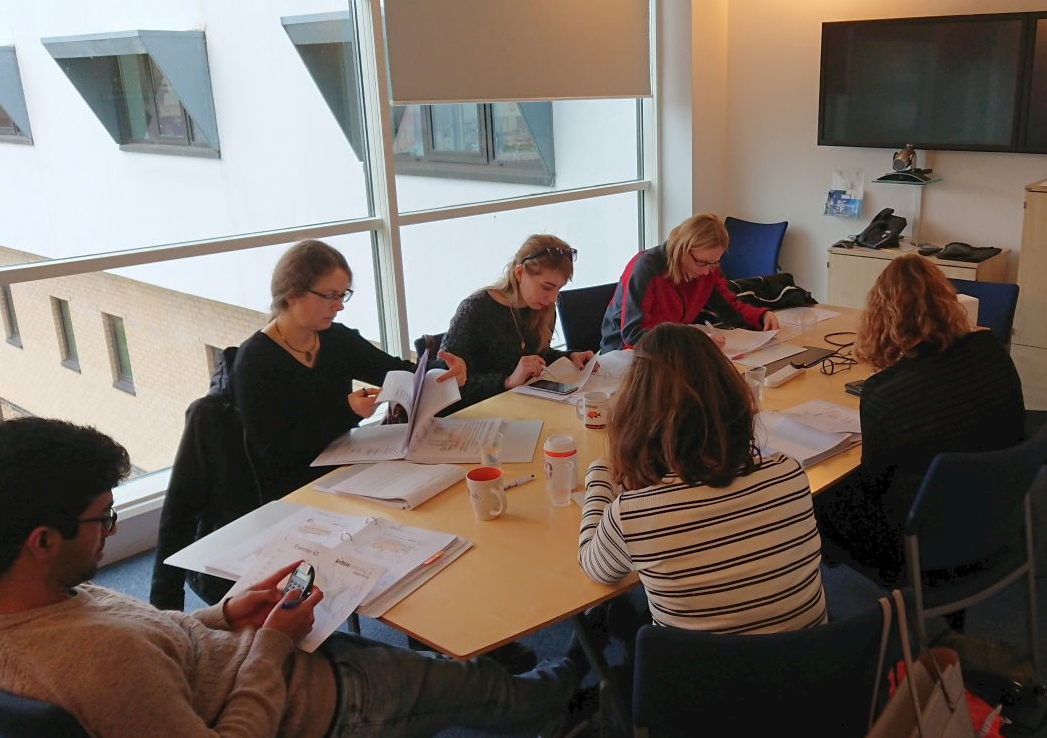Absolute Basics of Techniques for determination of properties of molecules
- Duration: 3 days for face-to-face 19.50 hours for Virtual Classroom training
- Experience level: Beginners
- Delivery methods: Face-to-face | Offsite training & consultancy | Online | Onsite training & consultancy | Tailored training |
- Type of course: Manufacturer specific
- Applicable to manufacturer(s):
- CPD Approved: Not yet approved
- Scheduled course price: £1,100.00 + TAX per delegate
- Course discounts: RSC CAMS HEaTED members receive a discount on this course

What will you learn on this course?
The Absolute Basics of Techniques for Determination of Physical & Structural Properties of Molecules course provides an introduction to a range of techniques used in the analysis of physical and structural properties of molecules, covering the what, why, where, when and how of Karl Fischer Titration (KF), Thermal Gravimetric Analysis (TGA), Differential Scanning Calorimetry (DSC), Laser Diffraction Analysis (LDA), Powder X-ray Diffraction (PXRD) and Mass Spectrometry Imaging (MSI).
- What is each technique?
- Why do we use each of these techniques? How could they help solve problems and what answers could they give?
- When do we use these techniques? What types of analytes and samples can you use them for?
- How does each technique work? and what instrumentation is available?
- Where do we use each technique? Which applications to answer what questions?
Learning outcomes
- You will learn about the different types of each technique
- You will understand the definition of each technique
- You will learn the principles & limitations of each technique
- You will learn about the principles and components of instrumentation used
- You will learn the purpose and principles of data analysis
- You will learn about different sampling techniques for each technique
- You will learn about a number of industries and their application of each technique
Who is this course for?
- Beginners – those new to these techniques used in the analysis of physical and structural properties of molecules.
- Analysts or Technicians looking for a refresher in these techniques.
- Lab Managers and Line Managers – those who are responsible for the instruments or the analysts using them.
- Data Analysts and Report Writers – technical specialists who aren’t using the instruments but are using data from them.
- Service Engineers and Consultant Engineers – those who look after or recommend the use of these instruments but don’t have the chemistry background or chemistry viewpoint.
- Those involved in the Sales or Marketing of these instruments, their consumables or their use for analysis – e.g. manufacturers, contract labs, media companies.
Course combinations
You can choose to attend individual modules from this course for Virtual Classroom training
- Module 1: Absolute Basics of Karl Fischer Titration (KF)
- Module 2: Absolute Basics of Thermal Gravimetric Analysis (TGA)
- Module 3: Absolute Basics of Differential Scanning Calorimetry (DSC)
- Module 4: Absolute Basics of Laser Diffraction Analysis (LDA)
- Module 5: Absolute Basics of Powder X-ray Diffraction (PXRD)
Feedback from previous attendees
“I liked that it really was what it said it would be – absolute basics!.. This course started with terminology and equipment then went into uses and two company case studies as examples. Really well paced and good for someone like me who has never done the techniques – I have only every heard of it. So the thorough introduction and explanations were really helpful to me…” William Andrews, Lecturer of Chemistry, Belfast Metropolitan College – attended the Absolute Basics of Karl Fischer Titration (KF), June 2021.
“The instructor was very knowledgeable and communicated in an accessible way.” delegate who attended the Absolute Basics of Thermal Gravimetric Analysis (TGA), July 2020.

